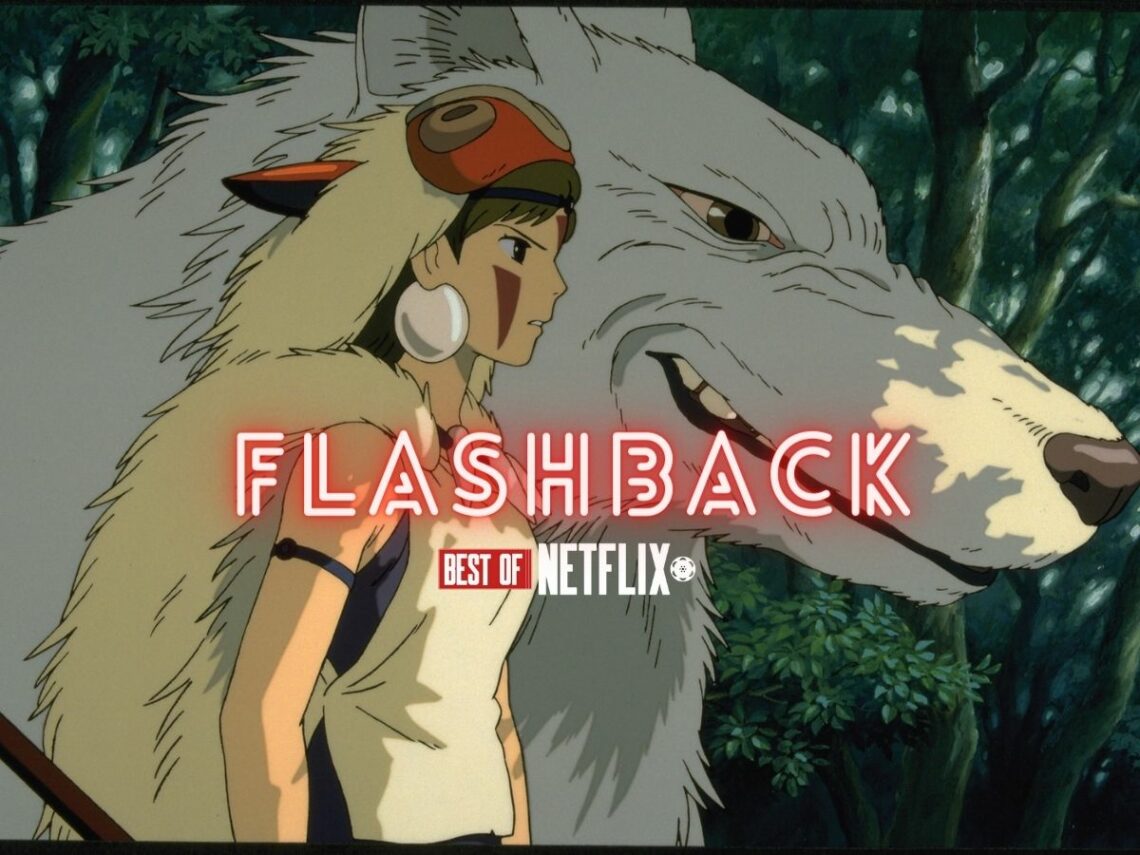There are countless new titles to jump into when scrolling through Netflix. However, some classics of cinema are hidden among the new releases and immeasurable teen dramas. We use Netflix Flashback as the perfect vehicle to look back and find some of those miraculous movie masterpieces. This week, we’re heading to Studio Ghibli and Princess Mononoke.
Ever since its inception in 1985, the Japanese animation company Studio Ghibli has been dedicated to an ethos of wholesome creativity, instilling a magical vibrancy to each and every one of their movies.
Its name, ‘Ghibli’, was chosen by co-creator of the studio Hayao Miyazaki, with its origins referring to the Libyan Arabic name for ‘hot desert wind’, with the idea behind the name referring to Miyazaki’s ambition to “blow a new wind through the anime industry”. With an impact more like a gale, Studio Ghibli has since created 23 feature films, each challenging the nature of the animation genre, elevating it beyond cliches of being mere ‘children’s films’.
One of the company’s most distinct values is its focus on environmental tales, often told within the context of fantasy. Such themes are explored in some of their earliest films, including Nausicaä of the Valley of the Wind, Pom Poko and 1997’s Princess Mononoke.
The most spectacular epic in the studio’s filmography, the release of Princess Mononoke was a significant moment for the studio, with the movie boasting its longest runtime due to its sprawling narrative and complex sequences high-octane animation.
Inspired by the westerns of John Ford, Miyazaki brought together “characters from outcast groups and oppressed minorities who rarely, if ever, appear in Japanese films,” to form the town at the centre of this grand tale. It’s a complex one too, packing layers and layers of detail into a compact film that follows a young prince named Ashitaka who travels across a land ravaged by humans in need of a cure for the venom of a savage beast who attacks him.
Depicting stunning landscapes, along with one of Ghibli’s most cinematic stories imbued with the grandeur of Japanese mythos, Miyazaki comments that his aim with the film was to “portray the very beginnings of the seemingly insoluble conflict between the natural world and modern industrial civilisation”. As with many of the studio’s projects, this thematic heart pervades the world of Princess Mononoke with the real-world climate crisis reflected in the war between a capitalist city vying for industrialisation and the residents of the forest who are fighting for survival.
Its message is simple, even if it is shrouded in complex mythos and fantasy, with filmmaker Hayao Miyazaki demonstrating his nuanced approach to such cautionary tales, inspiring younger viewers to take action on the urgent climate crisis whilst creating an enveloping imaginative tale. Though unlike the whole-hearted charm of his wondrous animated landscapes, Miyazaki isn’t blind to the genuine threat to the environment in real life, with the often bleak narrative of the movie reflecting this fact.
“The idea that nature is always gentle and will give birth to something like the Sea of Decay in order to restore an environment polluted by humans is a total lie,” Miyazaki stated in 1994, making reference to his 1984 movie, Nausicaä of the Valley of the Wind, adding, “cling[ing] to such a saccharine worldview is a big problem”. Indeed, Princess Mononoke, and the rest of the Ghibli filmography, toy with fantasy with one foot firmly in the realms of reality where no amount of movie sensationalism can break the dooming inevitability of a changing climate.
No doubt, however, Miyazaki recognises the importance of storytelling in changing an individual’s worldview, particularly for those who find the facts of science a little too harsh to swallow. In Princess Mononoke Miyazaki makes the facts clear without ever patronising the viewer, if you bleed the environment dry, the environment will retaliate. If you’re not conscious of your actions, you will see the damage of your ignorance.
Watch Princess Mononoke on Netflix now.
